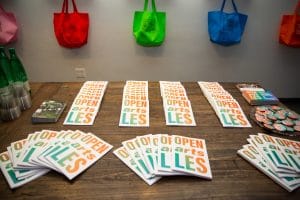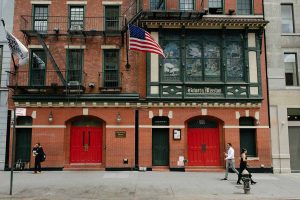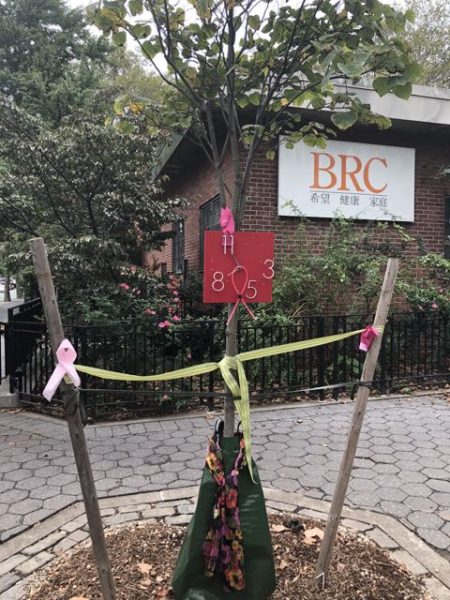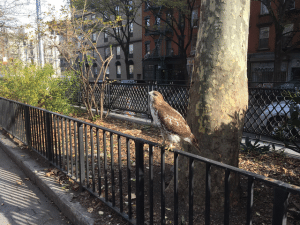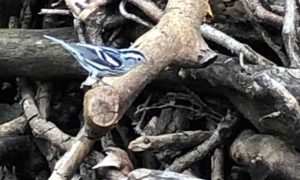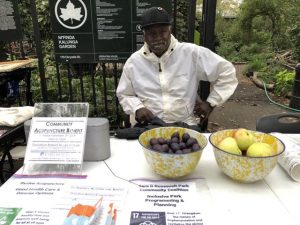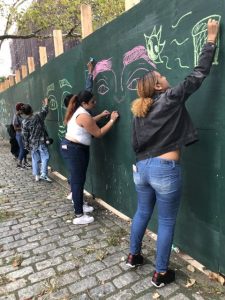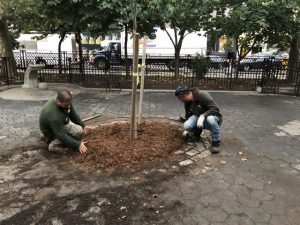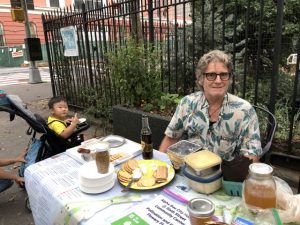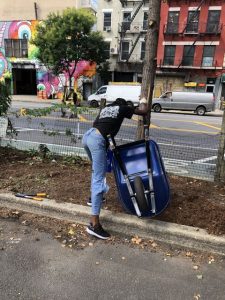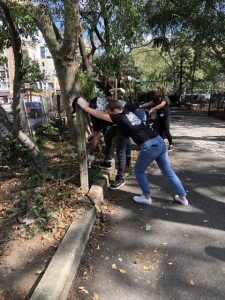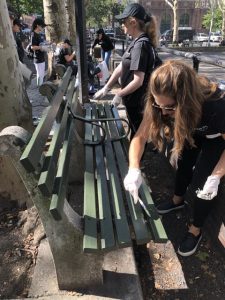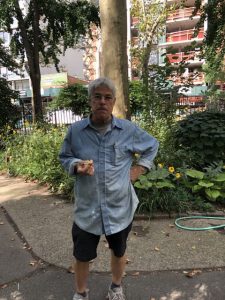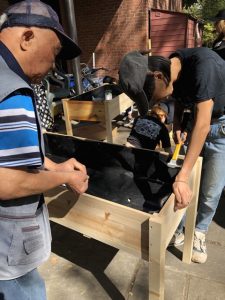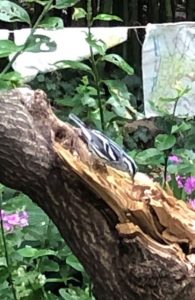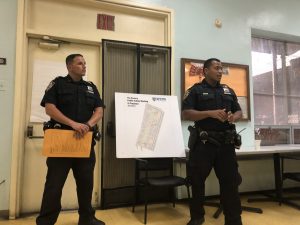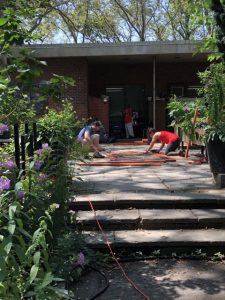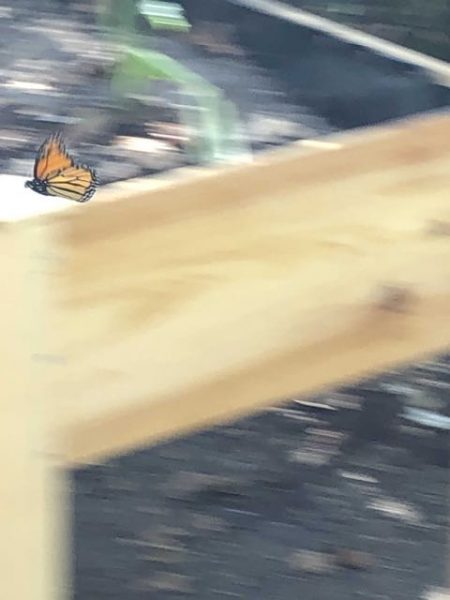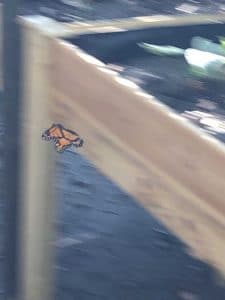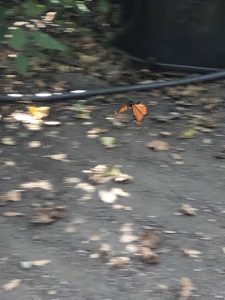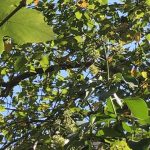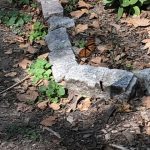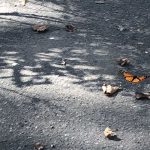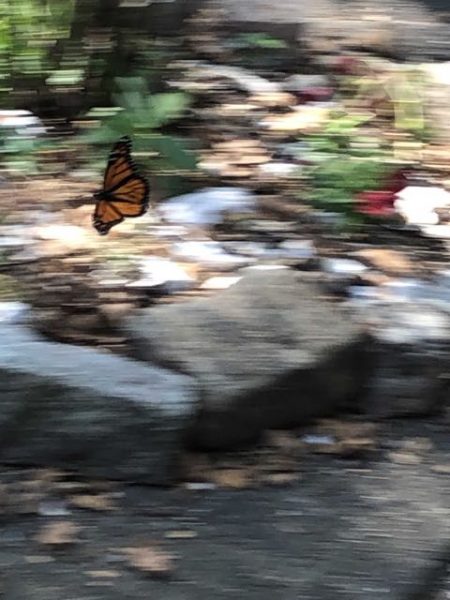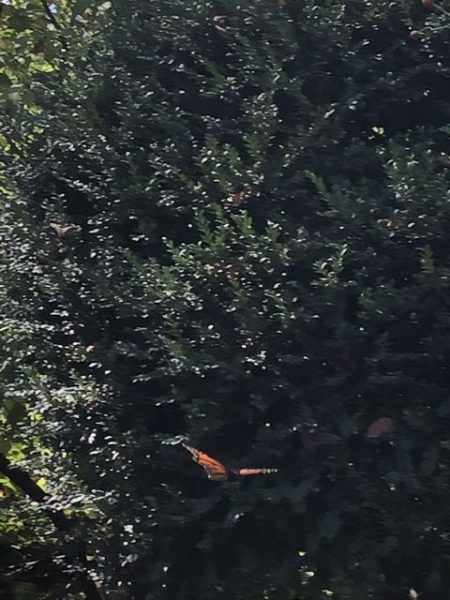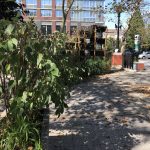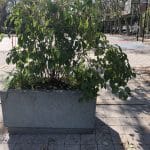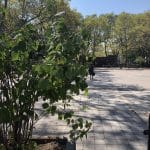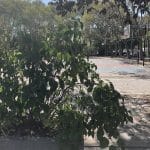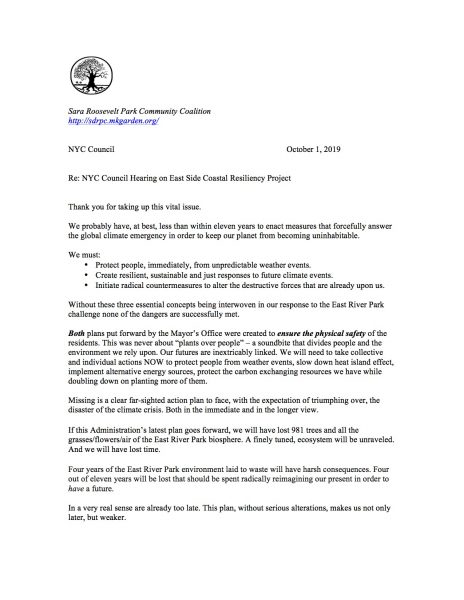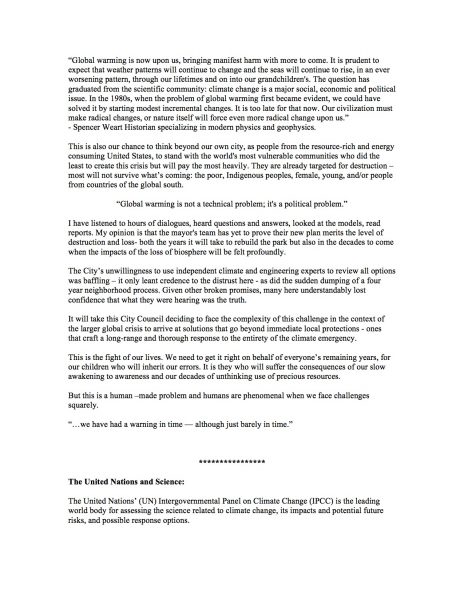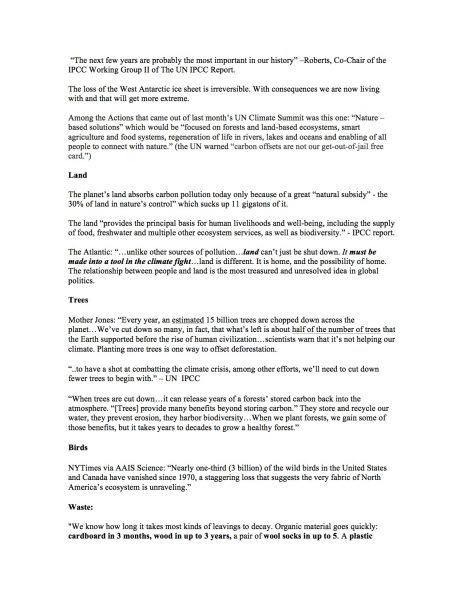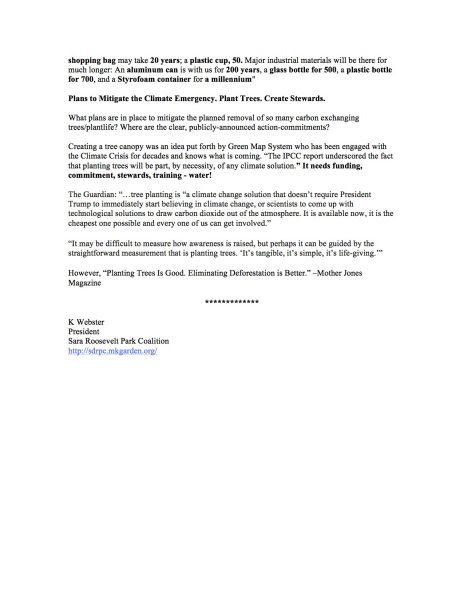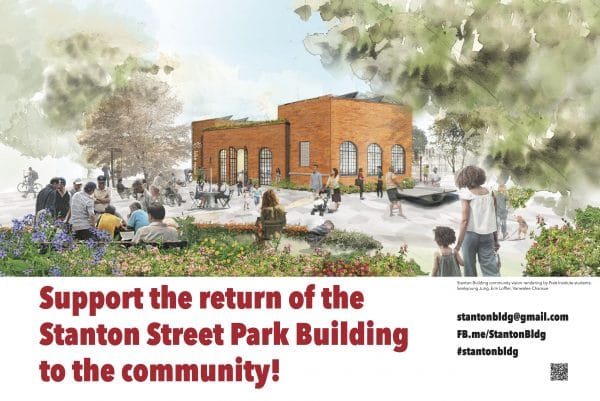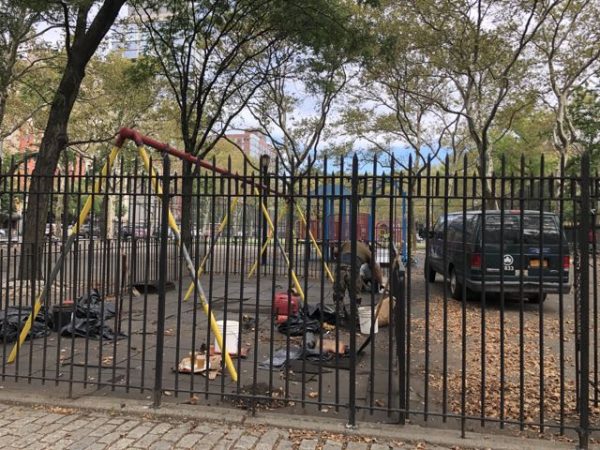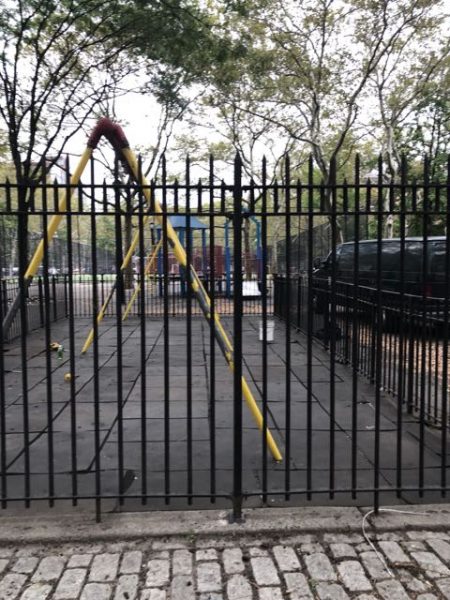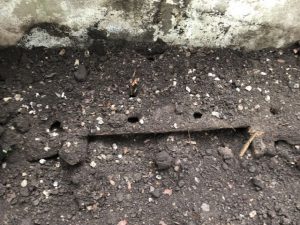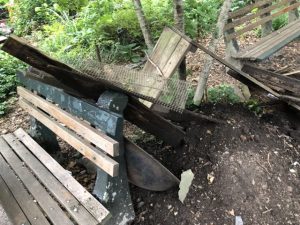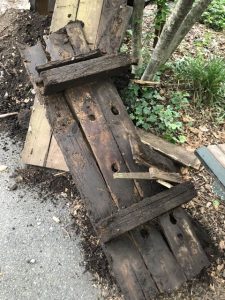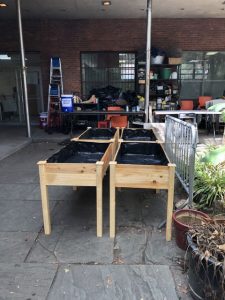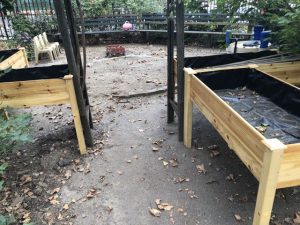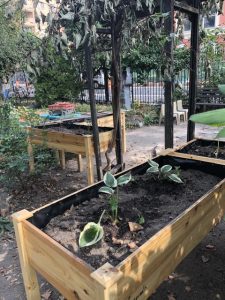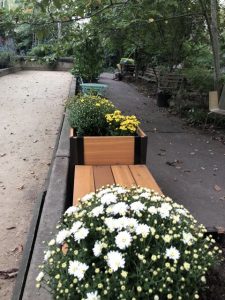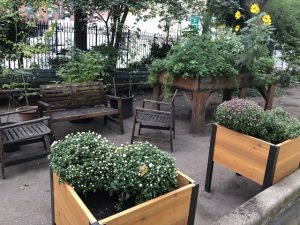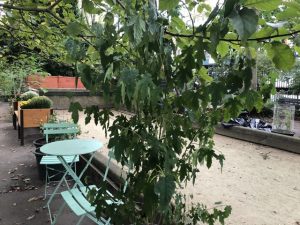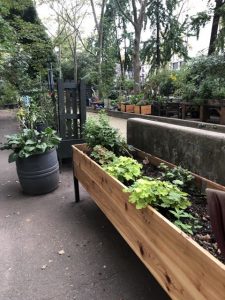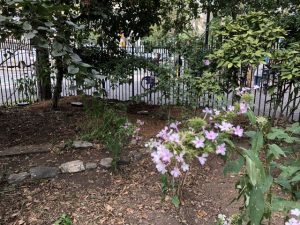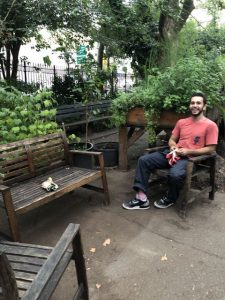Thoughts on Resources for Our Unhoused Neighbors in This Park
Our wish list (more to come):
- Housing (depending on what is needed – decent providers of supportive housing)
- Nursing homes with decent ratios of nurses/aides to attend, humanely, to the physical and mental health needs of our elders (no 83 year old should be on our streets for lack of a safe, culturally competent, welcoming place to sleep). For that matter nor should anyone.
- Move forward NOW on the Haven Green with 30% housing for formerly homeless
- Restore dignity: Mobile shower units (end the showering in the children’s spray shower area).
- Restore dignity: 24/7 open bathrooms with paid security and maintenance crews in Sara Roosevelt/other parks that require it (end the use of park as a latrine)
- Restore a sense of joy: Arts programming for the chronically homeless or those living in shelters in our parks where they congregate.
- Restore a sense of self-importance: Fund Bob Humber to build a garden with our unhoused community (we’re going to do it anyway but it would be nice). He already distributes food, friendship and clothing – for decades.
- Mental Health care that doesn’t rely on psychiatric drugs that this population likely doesn’t want and likely will not take consistently enough to not do worse damage
See different views below on mental health:
by PETER R. BREGGIN, M.D.
Executive Director, Center for the Study of Psychiatry Bethesda, Md., June 17, 1994
Your June 17 article reporting growing support in New York State for involuntary commitment to mental hospitals describes “a bill that would place those released from mental hospitals under court order to take medication and get counseling.”
A major aim is to force treatment on street people, and in almost all cases, that means drugs without counseling. In my interviews with street people at drop-in centers, I have found nearly all of them would rather endure the risks of homelessness — including starvation and physical abuse — than subject themselves to psychiatric drug treatment. Is their viewpoint entirely irrational, as the proposed laws would suggest?
In most cases, the drugs forced on street people are categorized as neuroleptics or antipsychotics. These drugs cause a neurological disorder, tardive dyskinesia, which is usually untreatable and irreversible. It involves involuntary movements that can be disfiguring, disabling and sometimes painful. Conservative estimates indicate tardive dyskinesia strikes 25 percent or more of drug-treated patients. Among the homeless, who are likely to be exposed for longer periods, the prevalence can exceed 50 percent.
As I document in “Toxic Psychiatry” (1991) and elsewhere, proof is growing that many of these patients will also undergo drug-induced permanent damage to their mental processes, tardive dementia. Beyond that, the neuroleptics do not “tranquilize,” as some other medications do. They typically produce painful and sometimes agonizing physical and emotional reactions, including akathisia, which can drive the victim to move compulsively in a vain attempt to alleviate the inner agitation.
While the neuroleptics do cause lobotomy-like apathy and docility, this serves the interests of institutional care more than the patient’s needs.
Even if, by a seemingly objective standard, drug treatment might “help” some of these people, should we force it on them? In addition to the civil liberties issues, there are social and economic ones. The problems of homelessness should not be “treated” psychiatrically. Homelessness escalated under 12 years of economic policies that reduced the income of the poor and produced unemployment, while raising housing’s cost.
Instead of psychiatrically sweeping the streets, let us increase the opportunities for America’s poorer and less able citizens. As a group, they are most in need of unskilled or entry-level jobs and affordable housing. And those few who are too disabled to work need our sympathy and support, not involuntary drugs and giant lockups.”
“Almost 40% of the most seriously mentally ill in New York receive zero treatment.”
NY Daily News: How to truly help the homeless: Expand Kendra’s Law to reach those in need and avert future tragedies
By DJ JAFFE: executive director of Mental Illness Policy Org
OCT 09, 2019
“Why wasn’t he evaluated?
Four homeless New Yorkers were killed on Saturday morning…The suspect, who has confessed to the crimes, is another homeless man, Randy Rodriguez Santos, just 24 years old, with at least 14 prior arrests and likely needing mental health care that he never received…
“…*Kendra’s Law…does two things that are important: It compels seriously mentally ill individuals with a history of homelessness or incarceration to comply with treatment, and it forces the city to provide services to those who would benefit from it the most, but are usually sent to the back of the line…
.. [require] the city’s Department of Health and Mental Hygiene to start evaluating all seriously mentally ill people being discharged from Rikers; all seriously mentally ill leaving shelters; and all mentally ill patients being discharged from city hospitals after an involuntary commitment. Those are the three highest risk groups; evaluate them all to see if they are eligible for Kendra’s Law and get them into it if they are.
For their own sake and for ours, we should focus on those groups, not shun them. The Council should also insist that Kendra’s Law be advertised and publicized and that the city’s mental health call center (1-888-NYC-WELL) provide assistance to families who want their loved ones considered for Kendra’s Law.
*Kendra’s Law, since November 1999, is a New York State law concerning involuntary outpatient commitment. It grants judges the authority to issue orders that require people who meet certain criteria to regularly undergo psychiatric treatment

